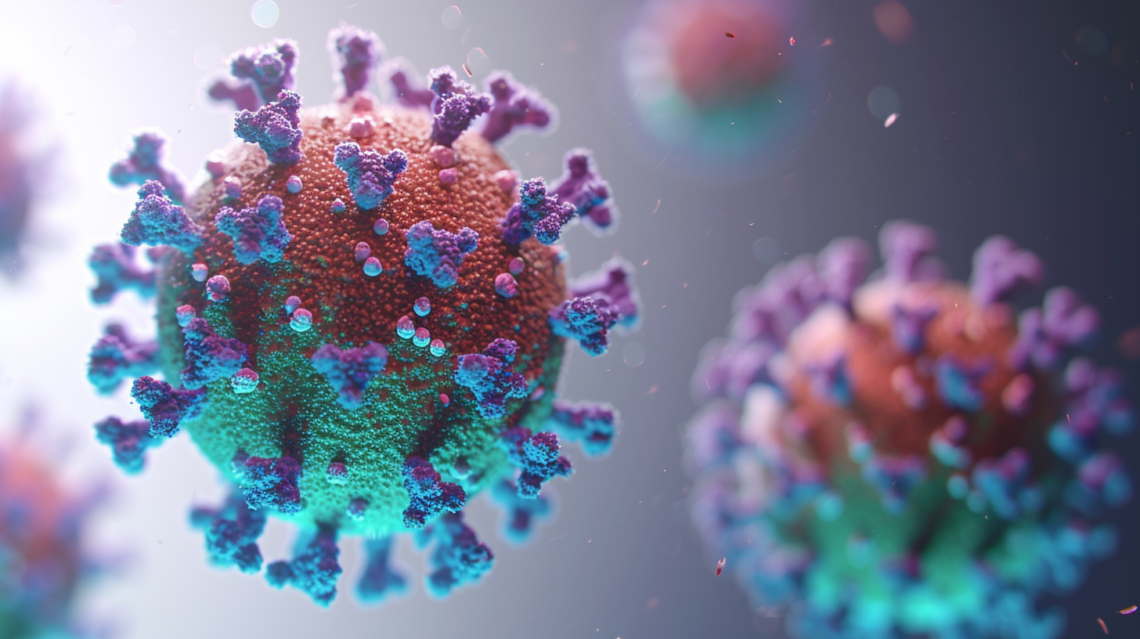
Long-COVID
Long-COVID, also known as post-acute sequelae of SARS-CoV-2 infection (PASC), is a term used to describe a range of symptoms that continue for weeks or months after the initial infection of COVID-19. This condition does not discriminate; affecting individuals regardless of the severity of their initial infection. It is a multifaceted syndrome, encompassing a wide array of symptoms that can fluctuate and change over time.
Symptomatology of Long-COVID
The symptom profile of long-COVID is diverse, with patients reporting a plethora of issues that can affect multiple organ systems. The most commonly reported symptoms include:
- Persistent Fatigue: This is not just a feeling of tiredness; it’s a profound exhaustion that doesn’t improve with rest and can significantly impair daily functioning.
- Breathlessness: Many patients report feeling short of breath, sometimes even after mild activity, which is out of proportion to what they experienced prior to their COVID-19 infection.
- Cognitive Impairment: Often referred to as “brain fog,” this involves difficulties with concentration, memory, and executive function, making it challenging to perform everyday tasks.
- Chest Pain and Heart Palpitations: These symptoms can be particularly alarming as they mimic those of serious cardiac conditions. However, in the context of long-COVID, they often occur without underlying cardiac disease.
- Joint and Muscle Pain: Aching muscles and joint pain are common and can be debilitating, affecting mobility and quality of life.
- Alterations in Smell and Taste: While some regain their senses post-infection, others continue to experience changes or a complete loss of these senses.
- Mental Health Issues: The psychological impact of long-COVID is significant, with many experiencing depression, anxiety, and other mental health disorders.
- Sleep Disturbances: Insomnia or unrefreshing sleep is frequently reported, further exacerbating fatigue and cognitive symptoms.
The Enigma of Long-COVID: Why Do People Get It?
The exact mechanisms behind long-COVID remain largely elusive. However, several theories have been proposed to explain why some individuals develop these prolonged symptoms:
- Viral Persistence: Some researchers suggest that remnants of the virus may persist in the body, leading to a continuous immune response.
- Immune Dysregulation: It is hypothesized that the immune system may continue to react in an abnormal way even after the virus is cleared, causing inflammation and damage to various tissues.
- Vascular Damage: COVID-19 can cause endothelial damage (the inner lining of blood vessels), which may contribute to long-lasting symptoms.
- Neurological Impact: The virus can affect the nervous system, potentially leading to the cognitive and neurological symptoms seen in long-COVID.
- Genetic Factors: There might be genetic predispositions that make certain individuals more susceptible to long-term effects.
- Deconditioning and Psychological Factors: The role of physical deconditioning and psychological factors in the persistence of symptoms cannot be overlooked.
Long-COVID presents a complex challenge to the medical community. As research continues, it is imperative for healthcare providers to recognize and validate the experiences of those suffering from this condition. Multidisciplinary approaches, encompassing medical, psychological, and rehabilitative support, are crucial in managing long-COVID effectively. In Canada, where the healthcare system is deeply rooted in providing comprehensive care, addressing long-COVID is not just about treating symptoms but also about understanding the patient’s overall health journey post-COVID-19. As we learn more, we hope to uncover more effective treatments and support mechanisms for those affected by this lingering shadow of the pandemic.


One Comment
Pingback: